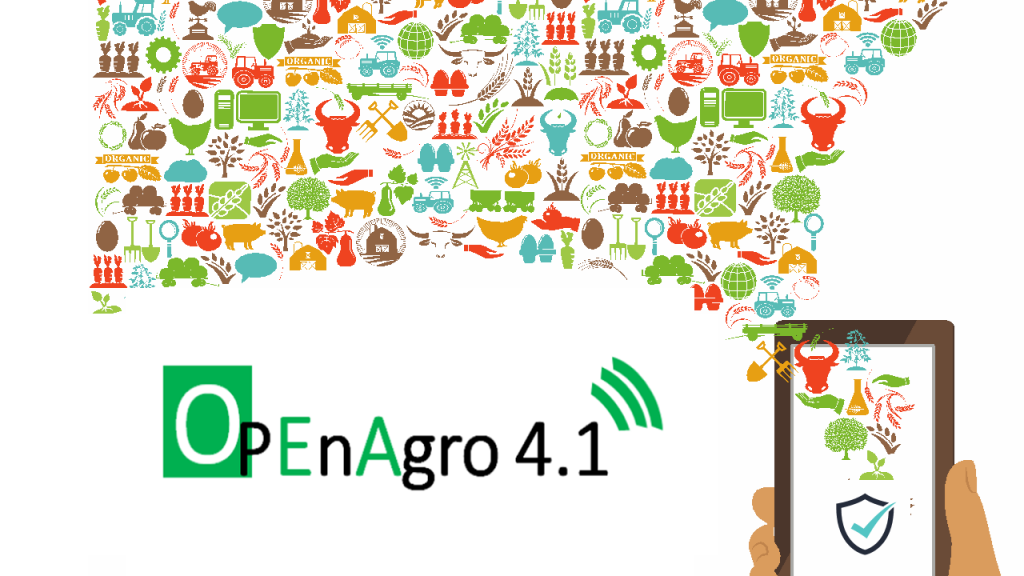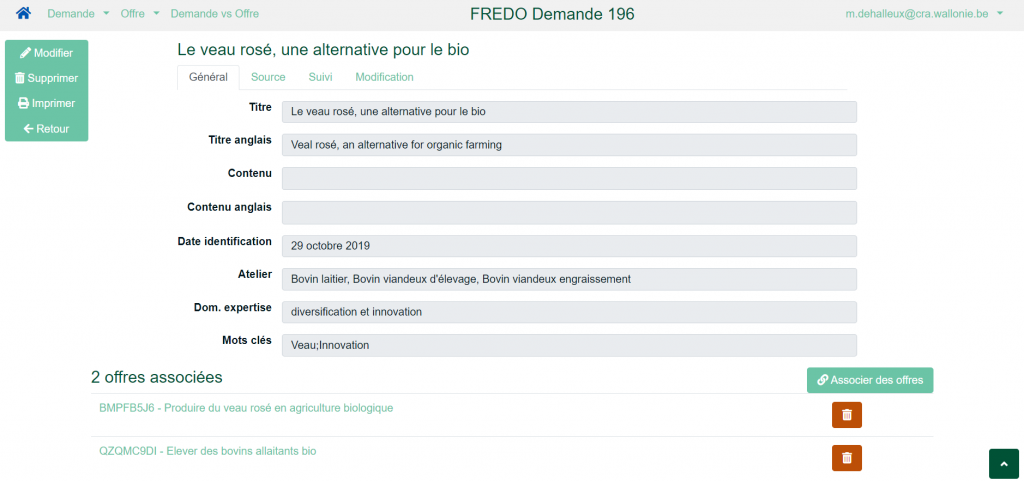The amount of data generated on farms, including data for environmental monitoring, is growing exponentially.
These data are being used for launching online platforms and modelling Decision Support Tools (DST).
In the context of "big data", the development of intellectual property rights in response to digital practices, and rapidly evolving regulations relating to the access to and transfer of data (RGPD, PSI, Open data, etc.), the OpEnAgro 4.1 project aims to:
- define good practices necessary for the development of platforms and DST,
- upload high-performance Walloon tools that comply with data ownership,
- provide legal training for those involved in the research and development of Smart Farming.
OpEnAgro 4.1 brings together those involved in the agricultural and environmental sectors in an unprecedented way (CRA-W, ISSeP, elevéo (awé Groupe), WalDigiFarm and REQUASUD), along with experts in legal matters and new technologies: CRIDS, UNamur.
The case studies considered so far have provided answers to a series of questions, for example:
- Do the data generated on a farm (the production of a cow, an aerial photo or the geolocation of a tractor, data from the weather station, etc.) constitute personal data?
- How can research results based on personal data be scientifically enhanced?
With the implementation of recommendations emerging from this project, we can reassure farmers and research partners that their data is used according to the European, Belgian and Walloon regulations currently in force, and also according to the conditions of use required by farmers, breeders or other "data creators".
The formalisation of user agreements and data management plans, which are established systematically for collaborative research projects, is the first good practice proposed. It helps to develop better trust and transparency in the sharing of data that may be related to strategically or commercially important challenges.








